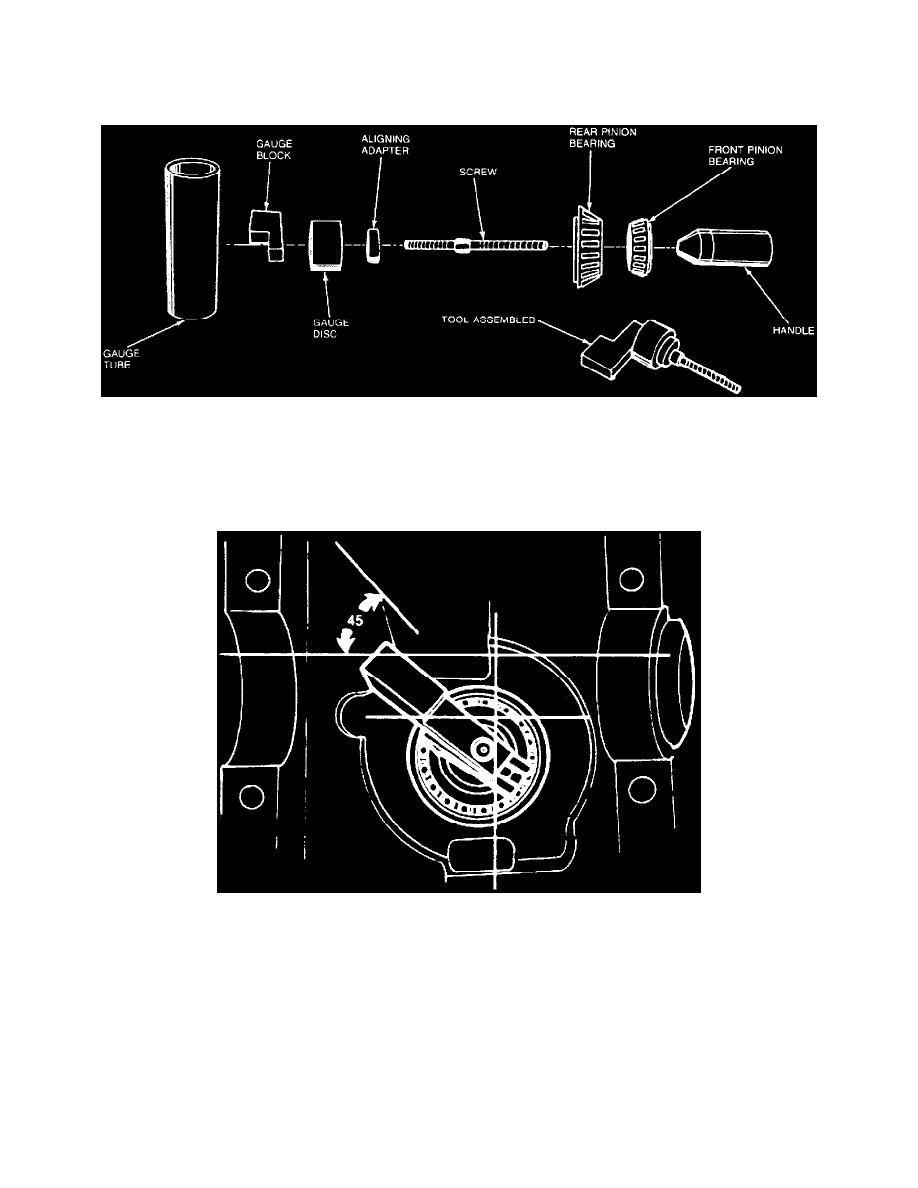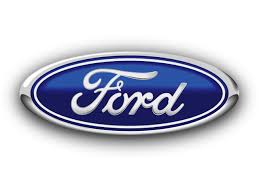Crown Victoria V8-4.6L SOHC VIN 6 (1996)

Pinion Bearing: Testing and Inspection
NOTE: Prior to determining drive pinion depth, clean pinion bearing cups and differential bearing pedestals thoroughly to ensure an accurate reading.
Apply only a light oil film to bearing assemblies to avoid false readings.
Pinion Depth Gauge
1. Assemble aligning adapter, gauge disc and gauge block to tool T79P-4020-A, or equivalent.
2. Place rear pinion bearing over aligning adapter, then insert tool and bearing in rear pinion bearing cup in pinion housing bore. Place front pinion
bearing over screw in front pinion bearing cup and assemble tool handle onto screw. Torque handle to 20 in lb. Ensure tool is mounted securely
between front and rear bearings.
Gauge Block Installation
3. Rotate gauge block several half turns to ensure bearings are seated properly. Rotational torque should be 20 in lb with new bearings. Set gauge
block at an angle approximately 45° from horizontal.
4. Install gauge tube in differential bearing mounts, then install bearing caps and bearing cap bolts.
5. Use pinion shims to determine pinion depth by inserting shims between gauge block and gauge tube. The proper shim will fit with a slight drag.
Do not attempt to force a shim between block and tube.
NOTE: Do not use shims that are bent, dirty, nicked or mutilated as a gauge.
6. Make note of proper shim size and remove tool from axle housing.
7. Using suitable arbor press and adapters, remove rear pinion bearing.
8. Install shim determined in previous steps on pinion shaft, then install bearing using arbor press. The rear pinion bearing used to determine drive
pinion depth must be used in the final assembly of the axle.
